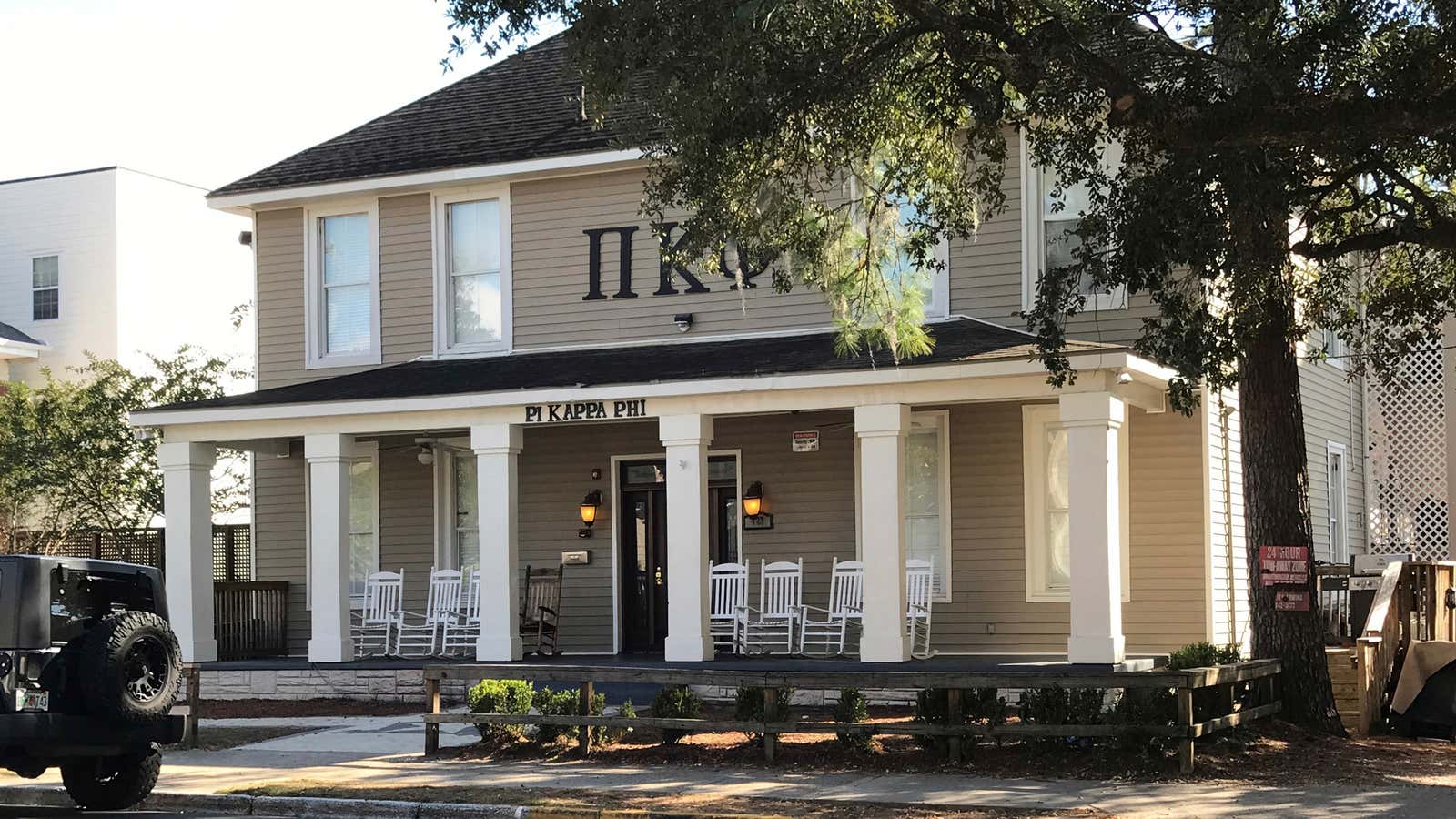In November 2017, at Florida State University, 20-year-old Pi Kappa Phi pledge Andrew Coffey died after being forced to drink an entire bottle of Wild Turkey 101 Bourbon. Six weeks earlier, at Louisiana State University, an 18-year-old Phi Delta Theta pledge, Maxwell Gruver, died of “acute alcohol intoxication with aspiration” after drinking the equivalent of 24 standard shots in a hazing game known as “Bible Study.” At the start of that year, 19-year-old Tim Piazza, a Beta Theta Pi pledge at Pennsylvania State, died after falling down the stairs after being forced to drink 18 drinks in under 90 minutes in a hazing ritual. More than 12 hours had elapsed before fraternity members finally summoned paramedics.
Now, after a “near-unanimous vote” at the annual North-American Interfraternity Conference, those particular bottles of liquor will be banned: More than 6,100 American and Canadian fraternities have 12 months to adopt and implement a policy that bans high-alcohol products from any chapter facility or at any chapter event. The hope is that drunken rituals such as these will come to an end.
Since 2005, more than 60 young people (paywall) have died in fraternity-related incidents. Many were alcohol poisoning or fatal falls, the consequence of hazing rituals in which young people desperate to join the club drank huge amounts, with tragic consequences.
“Hazing is all about taking advantage of someone that’s trying to get into your organization,” Tim Piazza’s father, Jim, told Quartz. “People feel compelled and forced to do what you’re asking them to do.”
Of course, it’s one thing to institute bans, and another to enforce them. Indeed, if fraternities had followed even the existing laws and rules, the deaths of Tim Piazza, Maxwell Gruver, and Andrew Coffey would never have happened: All three were drinking underage. And Beta Theta Pi was supposed to be entirely alcohol-free, as are many other fraternities and sororities.
That’s why, in a culture where young people are used to breaking alcohol laws, changing the culture around hazing may be just as important as changing the rules. For that, stories like the Piazzas’ may be key.
In the months since their son’s death, Jim Piazza and his wife Evelyn have worked with other grieving families to speak to thousands of fraternity members at conferences across the United States about the consequences of hazing rituals, aiming to break the cycles by showing students the costs involved. They don’t lecture the students, Evelyn told the Washington Post, but talk to them how devastating the loss of a child is. “We brought them into our world.” she said. “If they can feel it, they will remember it.”
Alcohol regulations are the first of many overdue steps, Jim Piazza said, but no less important are the conversations about drinking that need to start at home. “There’s never been an awareness like there is now,” he said.
Even if they aren’t followed universally, the new regulations are a good starting point, argues North-American Interfraternity Conference president Judson Horras. “If we wait around for the perfect rule that everyone will follow, we’ll never get there,” he told Quartz. “Especially with college students.”
